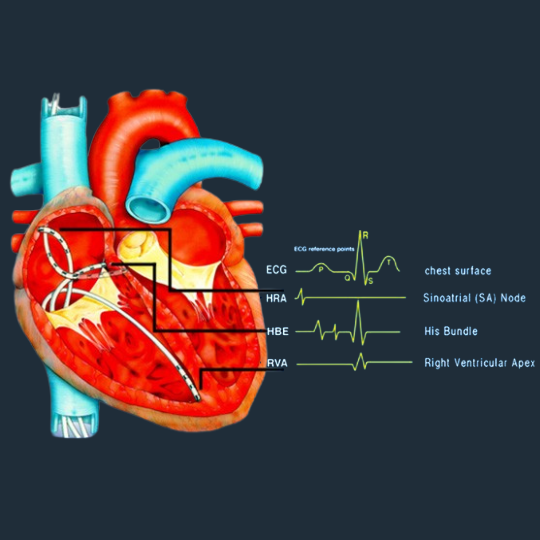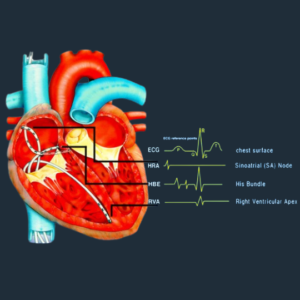- +91 83103 67685
- info@drameetoswal.com
- Basavanagudi
A series of tests that pinpoint the cause, and give’s an effective solution to abnormal heart rate and rhythm.

Our Best Cardiac Electrophysiologist in Bangalore | Dr. Ameet Oswal says,
An electrophysiology (EP) study is an invasive cardiac procedure with a series of tests that examine the heart’s electrical activity. The heart’s electrical system works on impulses that control the heartbeat timings. It helps the doctors to get a detailed activity map so that they can judge where the abnormalities are coming from.

There are many giveaways of why you might need to undertake these tests. These tests will give your cardiologist a clear understanding of your heart’s electrical problems. And consequently, they can assign the treatment that is best for you. Some of the symptoms can be:
The proven effective way of tackling these abnormal rhythms is to destroy the tissue housing the abnormal electric circuitry (arrhythmia). This process of eliminating the defective tissue is called Ablation and is done via Radiofrequency Ablation (RFA). For many arrhythmias, RFA is curative in 90-98% of cases.
When your heart doesn’t beat normally, doctors use EP study to find out why. Electrical signals govern your heartbeats in a regular pattern. Heart attacks, ageing and high blood pressure may cause defects in the heart. This may cause the heart to beat in an abnormal pattern. This problem is called arrhythmia of the heart.
The EP study procedure is as follows:
Several different tests are conducted during an EP study. Tests assigned to you will depend on your specific condition and your overall health. During an EP study, the following can be undertaken:
The proven effective way of tackling these abnormal rhythms is to destroy the tissue housing the abnormal electric circuitry (arrhythmia). This process of eliminating the defective tissue is called Ablation and is done via Radiofrequency Ablation (RFA). For many arrhythmias, RFA is curative in 90-98% of cases.
EP study is a minimally invasive process. An area in the groin or maybe the arm or neck is cleansed, and a small incision is made. A small tube will be inserted into your artery or vein. The doctor will gently put several specialized EP catheters into your blood vessel through the tube and advance them to your heart.
It can last up to 1 to 4 hours.
Subscribe our newsletter for latest information in the field of cardiology
WhatsApp us